Text



Our Flag Means Death
2.06 "Calypso's Birthday"
1K notes
·
View notes
Text
Me sitting down to read new big-brained metas about blorbos from my shows written by the tumblr girlies

144 notes
·
View notes
Text
it’s december 1 where’s the christmas tail kitten bring him to me
231K notes
·
View notes
Text
the thing that sucks is that people love saying sleep early is good etc etc and yeah it is. I've seen some benefits before. but I think it sucks to ignore that late night is the only time with any freedom. I think it sucks to not acknowledge the dread in waking up and it's a work day again
103K notes
·
View notes
Text
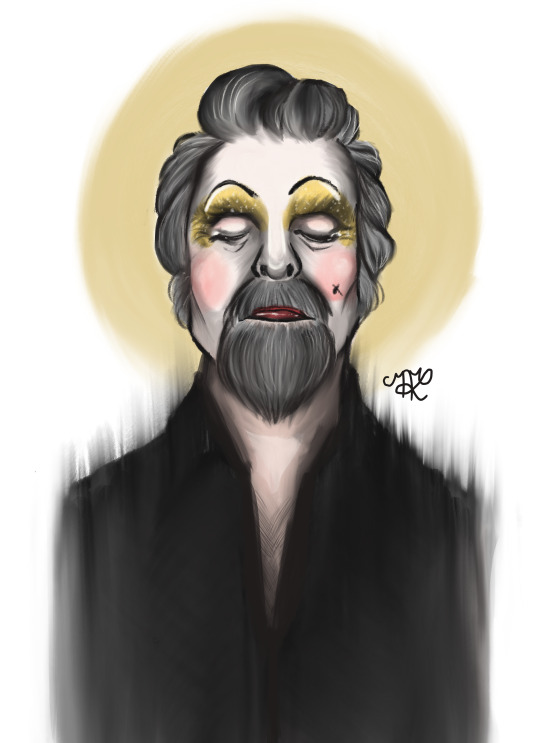
✨Toujours la vie en rose✨
37 notes
·
View notes
Text
This is just to say
Happy holidays
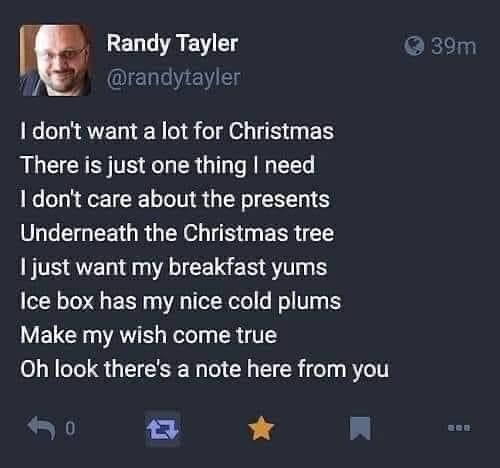
4K notes
·
View notes
Text

ho ho holy shit it’s december first (1st)

259K notes
·
View notes
Text
It’s that time of year to dust off
The Mystrade Christmas Generator!
Thanks to @mottlemoth we have a prompt generator just for the holiday season. Click the link above and you’ll get a scenario, bit of dialogue, words to include. Hope this helps get the creative holiday juices/punch flowing.

🎄❄️🎄❄️🎄❄️🎄❄️
12 notes
·
View notes
Text

Maurice (James Ivory, 1987) set photography: Rupert Graves as Alec Scudder waiting at the boathouse.
I’ve always loved this shot, but for many years I only had a microscopic newsprint copy. There’s also a gorgeous variant (impatient Alec in profile).
329 notes
·
View notes
Text
"Acceptable Violence" in OFMD Season 2: deconstructing violence within the context of the show's parameters
I've been doing a lot of thinking about violence and the second season of Our Flag Means Death. I've come to some conclusions that I would like to share, but I would like to preface my thoughts with a disclaimer or two:
I did not like the second season, for myriad reasons, some of which I will outline here.
But I am not here to attack you if you liked the season.
I am not here to make commentary on who you are as a person or your personal taste if you liked the season.
My not liking the season does not mean you can't like the season.
In short: my dislike of the season is not about you at all!
Also, this is not an academic paper. Which doesn't mean I might not do that in the future, but for now this is just an assembly of analysis and thoughts.
If you do not care to read analytical criticism of something you deeply enjoyed? I invited you to scroll onward. If you liked the second season but would like to hear some of the reasons why many, including myself, didn't - carry on!
The rest is under the cut.
The first season of Our Flag Means Death dips its toes into the world of piracy by following the unfolding story of Stede Bonnet, the newly minted former aristocrat-turned-pirate who dreams of a new sort of piracy; a gentler, more polite means of pirating.
Things, as they said, did not go according to plan.
The first season does an excellent job of laying the complex groundwork for an in-world set of principles which tell us what sort of violence is "normal" or "acceptable" in the context of the show and what isn't.
(Please assume from here on out that when I say acceptable and normal the "quotes" are implied, as I am not talking about what is acceptable and normal in real life.)
It does this through narrative framing, by softening more intense instances of violence through comedy and by pushing it off-screen, and by establishing who is a good guy and who is Not.
Unacceptable: Stede Bonnet getting beat on, tied up, and bullied by the Badmintons and their ilk as a child. He's soft and likes flowers! He's got a mean dad! No one likes bullies! It's framed as a negative, it's not super funny (the camera cuts to Stede's face both in the past and present looking distressed, and Stede is the hero, so this can be generally accepted as bad.)
This leads us to:
Acceptable: Badminton getting whacked over the head and falling on his own sword. This I would categorize as what people have been referring to as "looney tune violence." He was a bully! He's part of a colonial navy! He was being absolutely horrible to Stede! It's funny that Stede is so inept!
Stede feels guilty about it, it causes him trauma, but that trauma is treated, quite often, comedically (see Badminton's "ghost" taunting him, characters treatment of his breakdown, etc).
The context clues for whether or not this is acceptable violence are baked right into the writing, too. Oluwande says - claiming that Stede killed Badminton on purpose would gain him the respect of his crew. This is violence that in-world is both acceptable, expected, and also respected for the captain of a pirate ship.
(See also: Murdering and/or tying up the remaining British navy crew and putting them through the same thing Stede went through. It's framed as triumphant, Stede having been vindicated, the crew celebrating it as a victory.)
Unacceptable: Stede's concept of "soft piracy" of course comes crashing down when his whimsical attempt to woo the Spanish navy is cut short by his getting gut-stabbed.
Stede and the crew are being framed as the heroes of the story and the Spaniards are framed as the bad guys; this setup is why this violence, while totally within the realms of something our crew would do, is categorized as unacceptable.
It's also important to note, however, that while it could have been quite a bit more graphic and disturbing if shot differently, the swelling symphony, the comedic cuts of the Spaniards triumphantly getting their ass kicked, softens the blow.
Other acceptable instances of violence:
The snail fork - horrifying if you think about it, but the narrative softens the blow. The guy was just really racist, giving us a sense of vindictive pleasure, and the violence is all off-screen (we don't actually have to see someone getting skinned with a snail fork).
The French ship - again, horrifying if you think too much about people trapped on a burning ship in the middle of the ocean. But, they had all just been huge racist shit-heads who had harmed our heroes. In the context of the narrative, it is framed as being justified. We also don't actually see anyone burning to death, and we get a very funny shot of Ed looking at Stede in awe, and Stede looking very please with himself, confirming in-narrative that this was okay.
Other unacceptable instances of violence:
Karl the bird - Jack is framed as an antagonist; he comes between Ed and Stede, obstructing the narrative subplot. Buttons, and by extension Karl, are part of the crew, the heroes. When Karl dies Buttons is devastated, everyone looks uncomfortable, and it's the last straw for Stede to kick Jack off the ship. Plus, there's the an "innocent character" thing similar to Stede as a child getting bullied; Karl was an animal, with no defenses, who did nothing wrong.
Finally, of course, we arrive at the moment that Lucius is pushed from the ship.
Unacceptable: By all accounts, pushing people from ships is probably not outside the realm of things that pirates Definitely Do. But here we have another great instance of framing heroes and bad guys. In this case, we have a hero (Ed), seemingly killing another hero (Lucius), who was not only just trying to help him, but was absolutely not expecting violence. We also have a "death" that happened off-screen. We don't see Lucius "drowning."
Had Lucius actually died, I think this would have been horrifying.
Narratively and thematically, it would not have fit into the spirit of the show, because you could no longer frame Ed as a hero. There would be no real way that I can see to meaningfully redeem him in the context of a comedy, even a "black comedy" (which I do not believe OFMD is).
And genuinely, I don't know anyone who thought Lucius was actually dead, so while what Ed did was horrible and awful and needed to be atoned for, it wasn't Final. It wasn't Irredeemable. He didn't become a capital v Villain.
The rules of the first season made sense to me. Everything that happened fit narratively, was thematically appropriate, and established a certain set of rules and conventions to follow.
It gets dark, and it does push the envelope of what I could bear in a "romantic comedy." Ed cutting off Izzy's toe is tempered (cutting off his littlest toe with a comedically large pair of scissors) but feeding them to him is disturbing.
Izzy was an antagonist, not a villain, so giving him treatment reserved for, say, the British navy characters, and doing so graphically and on-screen, was A Lot. This coming from me, who really, REALLY hated Izzy at this point in time.
But I think there was an underlying sense of hope that things would improve, resolve, and move forward through character growth and narrative. Stede was coming back to make amends; maybe Ed would find his way back to normalcy, and they'd meet in the middle.
It was expected that apologies would be made and Ed could come back from the unacceptable things he did to Lucius, to the Crew, and to Izzy especially. That there would be character and interpersonal growth for them.
Unfortunately, the second season is where the show's parameters around acceptable and unacceptable violence absolutely falls apart. It's never quite clear why something is acceptable vs not, and we never see the character and interpersonal growth "promised" by the narrative which would redeem the dark tonal shift and veer the story back towards comedy.
In order for Ed to be redeemed, the violence being framed as unacceptable during his Kraken era could not be so unacceptable that it crosses the line into irredeemable. Ed could not cross the line in the minds of the audience from "hero" to "villain."
But the first three episodes of the season... were dark.
They crossed the line.
It felt like a character assassination to me.
Ed's abuse of the crew, the continued maiming of Izzy (who at this point is hurdling into a sympathetic character arc of growth and redemption,) the self-harm, the attempted murder-suicide of his crew... most of it was on-screen, not at all tempered by comedy, and brutal. It wasn't heroes vs villains, it was supposed hero causing extensive harm and trauma to other heroes.
The writing in these episodes were narratively cohesive and well-paced. They were not, however, thematically appropriate to a romantic comedy. At this point in the season I still felt like it was building towards a breaking point where Ed would come back to himself, where character growth would be achieved, and amends would be made.
I was willing to hold tight.
But it didn't work in terms of the story that was setup in season one. It would have taken an incredible amount of character growth to even begin to come back from that; but I trusted the narrative to deliver.
However, the real problem is that this season tried to rewrite the in-show parameters of what constitutes acceptable violence in ways that are uncomfortable and contrary to reality in ways that I find harmful.
(I will be clear, in reference to recent discourse, I do feel the head-butt was comedic. It was looney tunes violence, it was well within the context of a romantic comedy, and it worked for me tonally, even though it's obviously not appropriate in real life.)
Ed's chair throwing in the context of a man who had spent three episodes inflicting increasingly terrible domestic violence on people who loved and cared for him, who stuck by him -- in the larger context of him doing all this just because he felt rejected by a romantic partner -- is presented as in-show acceptable violence. It's presented as falling within the parameters.
Proof? We are expected to still like Ed, and root for Ed, and want Ed to get better, and cheer for the romantic pairing "getting back together," and everything else. He is still presented as a hero.
Sure, the show is telling us that what Ed did in his Kraken era is bad; but not so Bad that we shouldn't forgive him for it when he has made no real move to make amends for what he did. Like the crew, and Izzy specifically, we are meant to simply... move forward.
That line about "getting away with it" without consequences I thought was a commentary on how Ed would not get to do that, actually was just... what happened.
The season also wants me to believe that in the in-show parameters that Ed would hurt absolutely anybody but DEFINITELY NOT Stede, because Stede is his ultra super special soul mate and he would never do him any harm.
This is not how things work in real life, and it is not a disbelief I am willing to suspend uncritically. Do I believe Ed, in the context of the show, would hurt Stede? Nope. I think it's more likely Stede would hurt Ed than the other way around.
But I don't like the message that this in-show parameter sends, about how violence, particularly DV, is inflicted. I don't like being told that there is a super special person that this person who has abused others won't hurt. It's a bad message, and bad writing, and bad in-show precedence to set.
I'm not going to say all this without mentioning the stereotypes surrounding men of color, particular Indigenous men, which paints them as abusers. These stereotypes have been mentioned in regards to people talking about Ed's abuse this season. It's important to examine and be critical of oneself as a white person, and look long and hard at these biases. I don't want to fall into the trap of racist biases, and I don't want it to go unmentioned.
I have thought long and hard about this. I've done a lot of self-examination on the subject of Ed and abuse. It has brought me back to my point of character assassination; I think the show fell into those stereotypes itself.
I think Ed's characterization this season was problematic, and a disservice to the character as laid out in season one, and that's a big part of my disappointment with this season.
(I also have a lot of thoughts on how Stede's character, who has been handed an immense amount of power over Ed and his agency as a character, is also extremely problematic. I will get into that in another post; it needs its own. So I'm not here to say Stede himself is not a Problem because he absolutely is and I will shout it from the rooftops.)
"But somekindofcontraption," you say! "Ed has trauma!"
Yes. That is very true. And it certainly explains some things, but as in real life, it absolutely does not excuse them. Ed's narrative was all about the perpetuation of trauma, particularly generational trauma, with absolutely no criticism or breakage of this cycle in any meaningful or productive way.
It set up the story and did no work to resolve it. Ed was simply fixed because he and Stede said I love you and kissed a few times. The romance's "resolution" was unearned and unsatisfying. Neither Stede nor Ed were held accountable for what they did.
Then there was Izzy, who spent the whole of his arc being redeemed, moving forward as a character. He was the only character, I would say, with any meaningful growth. He's also the only one whose story was explicitly about being queer and queer discovery, rather than queerness merely being and incidental part of it. He's the only one who shows any accountability.
Right up until the point that he died, his story was the best-written out of all of them.
Then he dies.
Izzy's death, and the ways that tonally it does not fit into the narrative, is another post onto itself. For now, I'll leave you with all of these rambling thoughts, condensed down as best I could into this tumblr post.
If you have any further thoughts, I would love to hear them in good faith. For now, I say, that it's okay to be disappointed. This story was so meaningful to so many, and to be so thoroughly let down is hard.
Grief is grief.
Take care out there, and be kind to yourself, and be kind to those that are grieving.
97 notes
·
View notes
Text
you're in the habit of denying yourself things.
if someone asked you directly, you would say that you love a little treat. you like iced coffee and getting the cookie. you drink juice out of a fancy cup sometimes, and often do use your candles until they gutter out helplessly.
but you hesitate about buying the 20 dollar hand mixer because, like. you could just use your arms. you weren't raised rich. you don't get to just spend the 20 dollars (remember when that could cover lunch?), at least - you don't spend that without agonizing over it first, trying to figure out the cost-benefits like you are defending yourself in front of a jury. yes, this rice cooker could seriously help you. but you do know how to make stovetop rice and it really isn't that hard. how many pies or brownies would you actually make, in order to make that hand mixer worthwhile?
what's wild is that if the money was for a friend, it would already be spent. you'd fork over 40 without blinking an eye, just to make them happy. the difference is that it's for you, so you need to justify it.
and it sneaks in. you ration yourself without meaning to - you don't finish the pint of ice cream, even though you want to. the next time you go to the store, you say ah, i really shouldn't, and then you walk away. you save little bits of your precious things - just in case. sometimes you even go so far as putting that one thing in your shopping cart. and then just leaving it there, because maybe-one-day, but not right now, there's other stuff going on.
you do self-care, of course. but you don't do it more than like, 3 days in a row. after that it just feels a little bit over-the-edge. like. you can't live in decadence, the economy is so bad right now, kid.
so you don't buy the rice cooker. you can-and-will spend the time over the stove. you can withstand the little sorrows. denial and discipline are practically synonyms. and you're not spoiled.
it's just - it's not always a rice cooker. sometimes it is a person or a job or a hug. sometimes it is asking for help. sometimes it is the summer and your college degree. sometimes it is looking down at scabbed knees and feeling a strange kind of falling, like you can't even recognize the girl you used to be. sometimes it is your handprint looking unsteady.
sometimes it is tuesday, and you didn't get fired, and you want to celebrate. but what is it you like, even? you search around your little heart and come up empty. you're so used to denying that all your desires draw a blank.
oh fuck. see, this is the perfect opportunity. if you had a mixer, you'd make a cake.
30K notes
·
View notes
Text


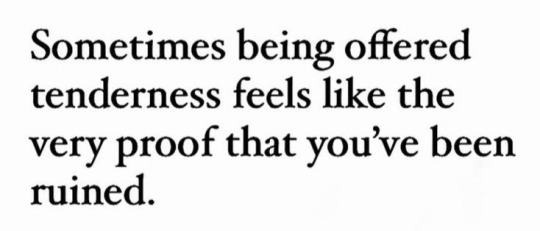


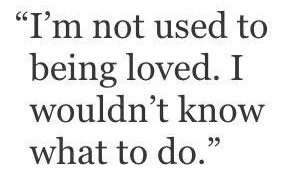

Isabel Allende, The House of The Spirits // Anne Carson, Red Doc> // F. Scott Fitzgerald, The Short Stories // Ocean Vuong, On Earth We're Briefly Gorgeous // 肉包不吃肉, The Husky and His White Cat Shizun // Bernhard Schlink, The Reader (trans. Carol Brown Janeway) // Heart Like Yours— Willamette Stone
8K notes
·
View notes
Text
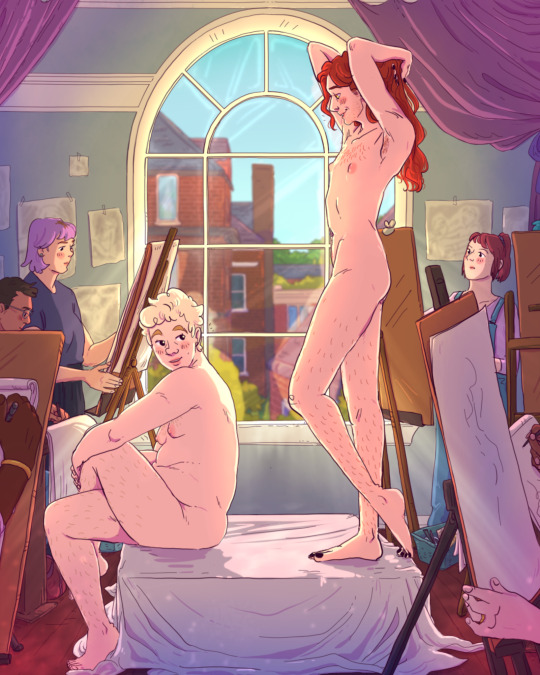
AU meet-cute in which they're both nude models for a local art class
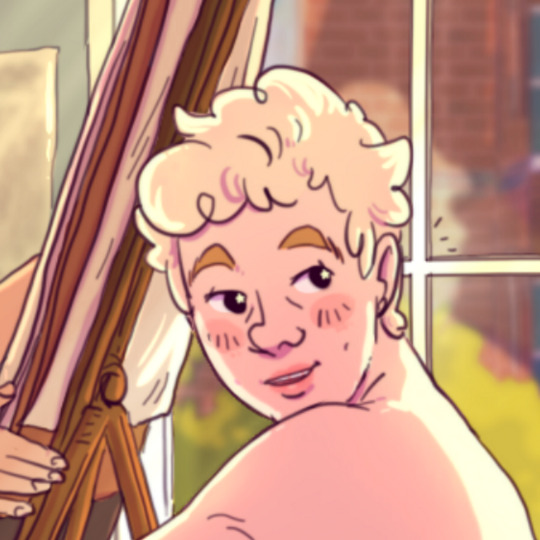
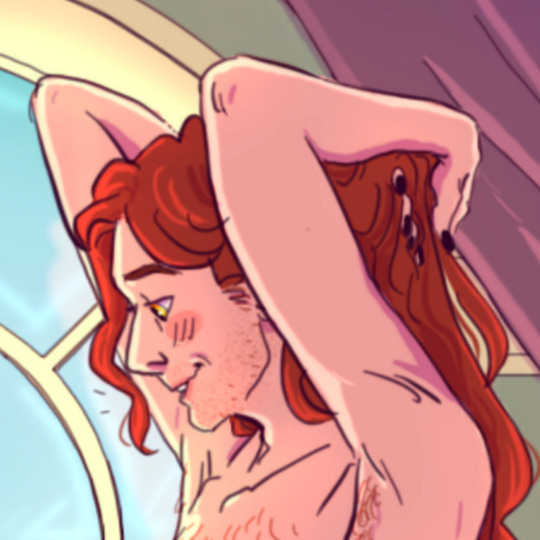
2K notes
·
View notes
Text
"Acceptable Violence" in OFMD Season 2: deconstructing violence within the context of the show's parameters
I've been doing a lot of thinking about violence and the second season of Our Flag Means Death. I've come to some conclusions that I would like to share, but I would like to preface my thoughts with a disclaimer or two:
I did not like the second season, for myriad reasons, some of which I will outline here.
But I am not here to attack you if you liked the season.
I am not here to make commentary on who you are as a person or your personal taste if you liked the season.
My not liking the season does not mean you can't like the season.
In short: my dislike of the season is not about you at all!
Also, this is not an academic paper. Which doesn't mean I might not do that in the future, but for now this is just an assembly of analysis and thoughts.
If you do not care to read analytical criticism of something you deeply enjoyed? I invited you to scroll onward. If you liked the second season but would like to hear some of the reasons why many, including myself, didn't - carry on!
The rest is under the cut.
The first season of Our Flag Means Death dips its toes into the world of piracy by following the unfolding story of Stede Bonnet, the newly minted former aristocrat-turned-pirate who dreams of a new sort of piracy; a gentler, more polite means of pirating.
Things, as they said, did not go according to plan.
The first season does an excellent job of laying the complex groundwork for an in-world set of principles which tell us what sort of violence is "normal" or "acceptable" in the context of the show and what isn't.
(Please assume from here on out that when I say acceptable and normal the "quotes" are implied, as I am not talking about what is acceptable and normal in real life.)
It does this through narrative framing, by softening more intense instances of violence through comedy and by pushing it off-screen, and by establishing who is a good guy and who is Not.
Unacceptable: Stede Bonnet getting beat on, tied up, and bullied by the Badmintons and their ilk as a child. He's soft and likes flowers! He's got a mean dad! No one likes bullies! It's framed as a negative, it's not super funny (the camera cuts to Stede's face both in the past and present looking distressed, and Stede is the hero, so this can be generally accepted as bad.)
This leads us to:
Acceptable: Badminton getting whacked over the head and falling on his own sword. This I would categorize as what people have been referring to as "looney tune violence." He was a bully! He's part of a colonial navy! He was being absolutely horrible to Stede! It's funny that Stede is so inept!
Stede feels guilty about it, it causes him trauma, but that trauma is treated, quite often, comedically (see Badminton's "ghost" taunting him, characters treatment of his breakdown, etc).
The context clues for whether or not this is acceptable violence are baked right into the writing, too. Oluwande says - claiming that Stede killed Badminton on purpose would gain him the respect of his crew. This is violence that in-world is both acceptable, expected, and also respected for the captain of a pirate ship.
(See also: Murdering and/or tying up the remaining British navy crew and putting them through the same thing Stede went through. It's framed as triumphant, Stede having been vindicated, the crew celebrating it as a victory.)
Unacceptable: Stede's concept of "soft piracy" of course comes crashing down when his whimsical attempt to woo the Spanish navy is cut short by his getting gut-stabbed.
Stede and the crew are being framed as the heroes of the story and the Spaniards are framed as the bad guys; this setup is why this violence, while totally within the realms of something our crew would do, is categorized as unacceptable.
It's also important to note, however, that while it could have been quite a bit more graphic and disturbing if shot differently, the swelling symphony, the comedic cuts of the Spaniards triumphantly getting their ass kicked, softens the blow.
Other acceptable instances of violence:
The snail fork - horrifying if you think about it, but the narrative softens the blow. The guy was just really racist, giving us a sense of vindictive pleasure, and the violence is all off-screen (we don't actually have to see someone getting skinned with a snail fork).
The French ship - again, horrifying if you think too much about people trapped on a burning ship in the middle of the ocean. But, they had all just been huge racist shit-heads who had harmed our heroes. In the context of the narrative, it is framed as being justified. We also don't actually see anyone burning to death, and we get a very funny shot of Ed looking at Stede in awe, and Stede looking very please with himself, confirming in-narrative that this was okay.
Other unacceptable instances of violence:
Karl the bird - Jack is framed as an antagonist; he comes between Ed and Stede, obstructing the narrative subplot. Buttons, and by extension Karl, are part of the crew, the heroes. When Karl dies Buttons is devastated, everyone looks uncomfortable, and it's the last straw for Stede to kick Jack off the ship. Plus, there's the an "innocent character" thing similar to Stede as a child getting bullied; Karl was an animal, with no defenses, who did nothing wrong.
Finally, of course, we arrive at the moment that Lucius is pushed from the ship.
Unacceptable: By all accounts, pushing people from ships is probably not outside the realm of things that pirates Definitely Do. But here we have another great instance of framing heroes and bad guys. In this case, we have a hero (Ed), seemingly killing another hero (Lucius), who was not only just trying to help him, but was absolutely not expecting violence. We also have a "death" that happened off-screen. We don't see Lucius "drowning."
Had Lucius actually died, I think this would have been horrifying.
Narratively and thematically, it would not have fit into the spirit of the show, because you could no longer frame Ed as a hero. There would be no real way that I can see to meaningfully redeem him in the context of a comedy, even a "black comedy" (which I do not believe OFMD is).
And genuinely, I don't know anyone who thought Lucius was actually dead, so while what Ed did was horrible and awful and needed to be atoned for, it wasn't Final. It wasn't Irredeemable. He didn't become a capital v Villain.
The rules of the first season made sense to me. Everything that happened fit narratively, was thematically appropriate, and established a certain set of rules and conventions to follow.
It gets dark, and it does push the envelope of what I could bear in a "romantic comedy." Ed cutting off Izzy's toe is tempered (cutting off his littlest toe with a comedically large pair of scissors) but feeding them to him is disturbing.
Izzy was an antagonist, not a villain, so giving him treatment reserved for, say, the British navy characters, and doing so graphically and on-screen, was A Lot. This coming from me, who really, REALLY hated Izzy at this point in time.
But I think there was an underlying sense of hope that things would improve, resolve, and move forward through character growth and narrative. Stede was coming back to make amends; maybe Ed would find his way back to normalcy, and they'd meet in the middle.
It was expected that apologies would be made and Ed could come back from the unacceptable things he did to Lucius, to the Crew, and to Izzy especially. That there would be character and interpersonal growth for them.
Unfortunately, the second season is where the show's parameters around acceptable and unacceptable violence absolutely falls apart. It's never quite clear why something is acceptable vs not, and we never see the character and interpersonal growth "promised" by the narrative which would redeem the dark tonal shift and veer the story back towards comedy.
In order for Ed to be redeemed, the violence being framed as unacceptable during his Kraken era could not be so unacceptable that it crosses the line into irredeemable. Ed could not cross the line in the minds of the audience from "hero" to "villain."
But the first three episodes of the season... were dark.
They crossed the line.
It felt like a character assassination to me.
Ed's abuse of the crew, the continued maiming of Izzy (who at this point is hurdling into a sympathetic character arc of growth and redemption,) the self-harm, the attempted murder-suicide of his crew... most of it was on-screen, not at all tempered by comedy, and brutal. It wasn't heroes vs villains, it was supposed hero causing extensive harm and trauma to other heroes.
The writing in these episodes were narratively cohesive and well-paced. They were not, however, thematically appropriate to a romantic comedy. At this point in the season I still felt like it was building towards a breaking point where Ed would come back to himself, where character growth would be achieved, and amends would be made.
I was willing to hold tight.
But it didn't work in terms of the story that was setup in season one. It would have taken an incredible amount of character growth to even begin to come back from that; but I trusted the narrative to deliver.
However, the real problem is that this season tried to rewrite the in-show parameters of what constitutes acceptable violence in ways that are uncomfortable and contrary to reality in ways that I find harmful.
(I will be clear, in reference to recent discourse, I do feel the head-butt was comedic. It was looney tunes violence, it was well within the context of a romantic comedy, and it worked for me tonally, even though it's obviously not appropriate in real life.)
Ed's chair throwing in the context of a man who had spent three episodes inflicting increasingly terrible domestic violence on people who loved and cared for him, who stuck by him -- in the larger context of him doing all this just because he felt rejected by a romantic partner -- is presented as in-show acceptable violence. It's presented as falling within the parameters.
Proof? We are expected to still like Ed, and root for Ed, and want Ed to get better, and cheer for the romantic pairing "getting back together," and everything else. He is still presented as a hero.
Sure, the show is telling us that what Ed did in his Kraken era is bad; but not so Bad that we shouldn't forgive him for it when he has made no real move to make amends for what he did. Like the crew, and Izzy specifically, we are meant to simply... move forward.
That line about "getting away with it" without consequences I thought was a commentary on how Ed would not get to do that, actually was just... what happened.
The season also wants me to believe that in the in-show parameters that Ed would hurt absolutely anybody but DEFINITELY NOT Stede, because Stede is his ultra super special soul mate and he would never do him any harm.
This is not how things work in real life, and it is not a disbelief I am willing to suspend uncritically. Do I believe Ed, in the context of the show, would hurt Stede? Nope. I think it's more likely Stede would hurt Ed than the other way around.
But I don't like the message that this in-show parameter sends, about how violence, particularly DV, is inflicted. I don't like being told that there is a super special person that this person who has abused others won't hurt. It's a bad message, and bad writing, and bad in-show precedence to set.
I'm not going to say all this without mentioning the stereotypes surrounding men of color, particular Indigenous men, which paints them as abusers. These stereotypes have been mentioned in regards to people talking about Ed's abuse this season. It's important to examine and be critical of oneself as a white person, and look long and hard at these biases. I don't want to fall into the trap of racist biases, and I don't want it to go unmentioned.
I have thought long and hard about this. I've done a lot of self-examination on the subject of Ed and abuse. It has brought me back to my point of character assassination; I think the show fell into those stereotypes itself.
I think Ed's characterization this season was problematic, and a disservice to the character as laid out in season one, and that's a big part of my disappointment with this season.
(I also have a lot of thoughts on how Stede's character, who has been handed an immense amount of power over Ed and his agency as a character, is also extremely problematic. I will get into that in another post; it needs its own. So I'm not here to say Stede himself is not a Problem because he absolutely is and I will shout it from the rooftops.)
"But somekindofcontraption," you say! "Ed has trauma!"
Yes. That is very true. And it certainly explains some things, but as in real life, it absolutely does not excuse them. Ed's narrative was all about the perpetuation of trauma, particularly generational trauma, with absolutely no criticism or breakage of this cycle in any meaningful or productive way.
It set up the story and did no work to resolve it. Ed was simply fixed because he and Stede said I love you and kissed a few times. The romance's "resolution" was unearned and unsatisfying. Neither Stede nor Ed were held accountable for what they did.
Then there was Izzy, who spent the whole of his arc being redeemed, moving forward as a character. He was the only character, I would say, with any meaningful growth. He's also the only one whose story was explicitly about being queer and queer discovery, rather than queerness merely being and incidental part of it. He's the only one who shows any accountability.
Right up until the point that he died, his story was the best-written out of all of them.
Then he dies.
Izzy's death, and the ways that tonally it does not fit into the narrative, is another post onto itself. For now, I'll leave you with all of these rambling thoughts, condensed down as best I could into this tumblr post.
If you have any further thoughts, I would love to hear them in good faith. For now, I say, that it's okay to be disappointed. This story was so meaningful to so many, and to be so thoroughly let down is hard.
Grief is grief.
Take care out there, and be kind to yourself, and be kind to those that are grieving.
97 notes
·
View notes
Text
I’ve seen a few takes on the whole “Is the writing actually bad or are you trying to order a milkshake from the hardware store?” genre expectations thing for OFMD s2 and I’m gonna add my own.
Yes, I know it’s billed as a lighthearted pirate romcom. And s1 was just that. But s1 also had some incredibly solid character arcs and thematic elements and layers and so much depth that were shaped by some more serious dramatic bits here and there.
I wasn’t expecting that going into it. In s1, I was expecting to go into the hardware store for hardware, as anyone would, because it’s advertised as a hardware store. But then I got there and discovered that this particular hardware store also happened to sell milkshakes. I didn’t expect milkshakes from a hardware store, especially not really good milkshakes since that seems like it might be a tough thing to sell together, but they were able to keep the hardware out of the milkshakes and vice versa, so it was great. You didn’t have to order a milkshake if milkshakes weren’t your thing and you never planned on ordering one since it’s ultimately a hardware store. You could just come for hardware. You could also really just come for the milkshakes if you wanted to, but it was still really clear that we were getting that milkshake from a hardware store.
And then s2 started and the hardware store spent three episodes really expanding on the milkshake sales. To the point it was like wow, if I hadn’t been told this was a hardware store, I’d almost think it was a milkshake shop. And since it was ultimately meant to be a hardware store, they clearly had to try and sell some hardware, but that seemed like it ended up being a little hard to make room for with how much of the store had been filled with milkshakes, so suddenly there are some milkshakes made with nails and screws, and there are toolboxes and lumber with milkshakes spilled on them. And idk maybe they should’ve served fewer milkshakes if they still were gonna try and sell that much hardware, because these things really don’t always mix and now we can’t really use either of them like that. But still, they just kept making more and more and more milkshakes until the blenders just exploded and there’s just this gigantic milkshake mess everywhere.
So at the onset of e4 it’s like okay, yeah, I have faith that this hardware store will definitely clean up the milkshakes because they’re clearly all over this place; it can hardly even be a hardware store til the milkshakes are cleaned up. But then besides a handful of paper towels that are used to clean up a little tiny puddle of milkshake, everyone just… resumes work selling hardware? Despite the fact that they’re still just walking around in the gigantic milkshake mess??
And that just keeps going til there’s only one episode left and it’s like geez idk why they still haven’t cleaned up the milkshakes I hope they can somehow. That seems tough with so little time left, but this place started as really great hardware store that sold quality milkshakes, so maybe they can pull it off.
But then instead, the CEO of the hardware store decides to unexpectedly murder one of the hardware store employees and says it was a kindness because said employee was just so sticky from the milkshakes that never got cleaned up. Which doesn’t seem like a valid reason AT ALL? and even in a messy, milkshake-covered hardware store, that WASN’T something anyone would typically expect to see?? Plus it still did NOTHING to clean up the milkshakes??
And a lot of us are left just asking “i don’t understand, why did no one clean up the milkshakes???” and for some reason, the response to that often seems to be “hardware stores don’t sell milkshakes”. No, they usually don’t, but this one did. None of us would have ever tried to order a milkshake if it hadn’t been established that this specific hardware store has always sold them, and we’re a little concerned that it’s still just covered in them.
It was also super confusing that the hardware store locked its doors and stuck an “out of business forever” sign up while also still planning to open again like usual but said that if they don’t, at least everyone got a happy ending.
Like… um I really don’t think they did and either way I’m a little wary about shopping at this hardware store again.
332 notes
·
View notes
Text
Lucius voice:
But would it be weird if I was like suddenly, into tumblr again?
2 notes
·
View notes
